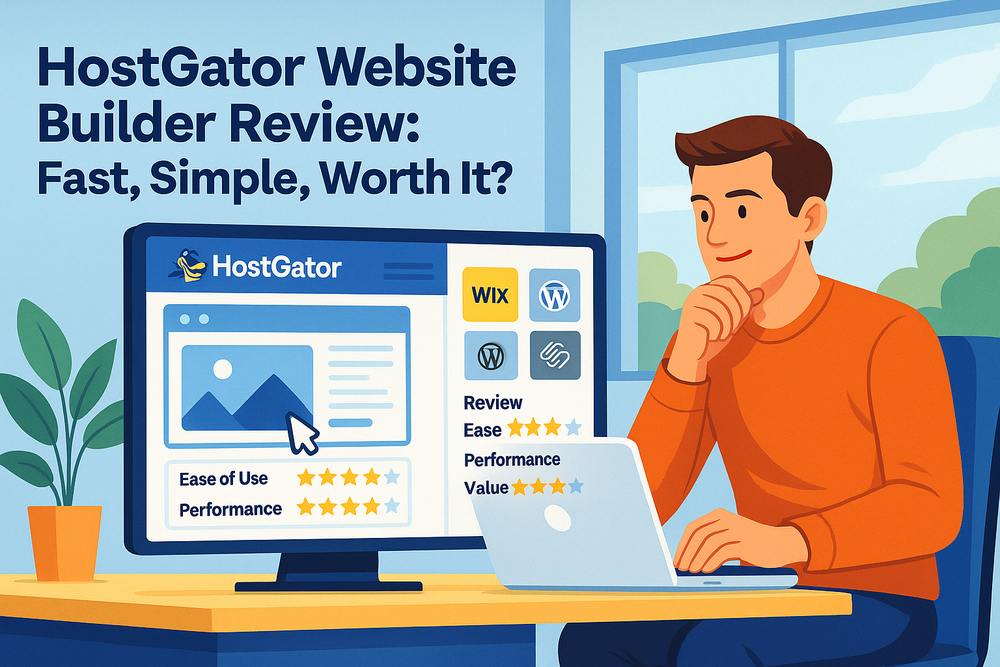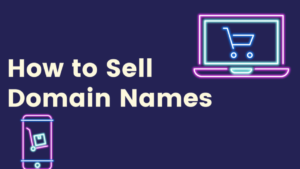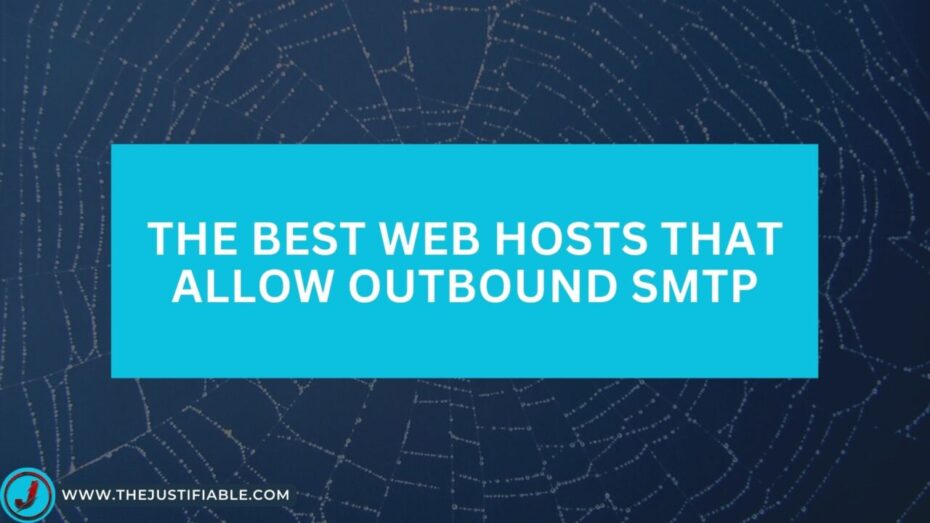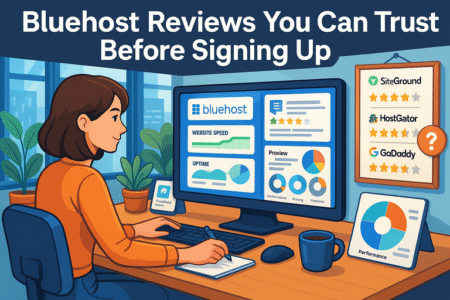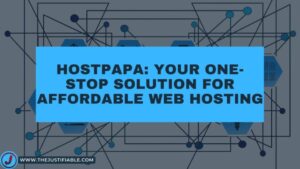Table of Contents
The HostGator website builder is often pitched as a quick and beginner-friendly way to get a site online. But is it really as fast, simple, and reliable as it claims to be?
In this review, I’ll dig into its features, ease of use, performance, and overall value to help you decide whether this tool is the right fit for your online presence.
How Easy Is the HostGator Website Builder to Use?
The biggest selling point of the HostGator website builder is its promise of simplicity.
If you’ve never touched a line of code before, the platform is designed so you can get from blank screen to working website without feeling overwhelmed.
Drag-and-Drop Editor Explained in Practice
When you log into your HostGator account and open the builder, you’re greeted with a clean dashboard. The editor works on a drag-and-drop system — meaning you literally grab an element like text, images, buttons, or forms and place it where you want.
From my experience, it feels a lot like arranging blocks on a canvas. Want to move a header image higher up? Click, drag, and drop it in seconds. Need a call-to-action button under your product description? Drag it from the menu, drop it into place, and you’re done.
A nice touch is the real-time preview. As you drag items around, the editor instantly shows how it’ll look on the live page, which saves you from endless “save and refresh” cycles. For someone who values time, this is a big plus.
Pre-Designed Templates and Customization Options
HostGator offers a library of templates sorted by categories like business, portfolio, or e-commerce. These aren’t mind-blowingly unique, but they’re modern enough to give you a polished starting point.
What I like is that you can customize every part:
- Swap out placeholder images with your own.
- Change fonts and colors to match your branding.
- Edit the layout without breaking anything.
It feels less like being boxed into a rigid design and more like having a flexible blueprint you can adapt. If you’re not a designer, starting with a template helps you avoid the dreaded “blank page paralysis.”
Building a Mobile-Friendly Site Without Coding
Here’s where HostGator makes life easier: every site you build automatically adapts for mobile. You don’t have to mess with CSS code or separate mobile layouts.
There’s even a mobile preview mode in the editor. Before publishing, you can switch views to see how your site looks on a phone or tablet. If a button feels too small or an image looks odd, you can tweak it right there.
That’s huge if most of your audience browses on their phones — and these days, they probably do.
Comparing Ease of Use Against Other Builders
I’ve tried Wix, Squarespace, and WordPress builders. Compared to those, HostGator falls right in the middle:
- Easier than WordPress (which can feel overwhelming with plugins).
- Not as design-flexible as Wix (which gives you more pixel-level control).
- Similar simplicity to Squarespace, but with a slightly lighter learning curve.
If you want a builder that’s forgiving for beginners but still gives enough creative control, HostGator strikes a solid balance. It won’t intimidate you, and you won’t outgrow it too quickly if you’re just running a small site or online shop.
HostGator Website Builder Speed and Performance
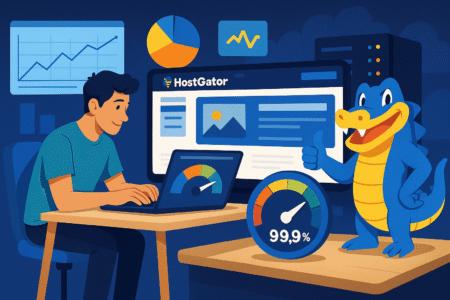
A website builder isn’t just about how it looks or how easy it is to use — performance matters. Visitors expect pages to load quickly, and search engines factor speed into rankings.
So how does HostGator stack up when it comes to speed and reliability?
How Fast Pages Load on Different Devices
From what I’ve seen, sites built with HostGator generally load in around 2–3 seconds on desktop with a solid internet connection. On mobile, it can stretch a little longer depending on image sizes and how much media you’ve added.
The platform does some behind-the-scenes optimization like compressing images and caching pages, which helps speed. Still, if you overload your site with high-res images or embedded videos, you’ll feel the drag no matter which builder you use.
Impact of Built-In Hosting on Website Speed
One advantage HostGator has is that the website builder runs on HostGator’s own hosting infrastructure. That means your site isn’t just cobbled together on third-party servers — it benefits from the same backbone as their shared hosting customers.
This built-in hosting reduces the chances of bottlenecks that happen when builders outsource hosting elsewhere. I’d say it’s noticeably smoother than some “budget” website builders that skimp on server resources.
Performance During High Traffic Periods
If your site gets a sudden traffic spike — maybe from a product launch or a blog post that goes viral — performance can dip. HostGator handles small to medium traffic just fine, but if you’re pulling in thousands of visitors at once, expect a few slowdowns.
This is where upgrading your hosting plan or optimizing your site content (compressing images, reducing scripts) becomes important.
For a personal site or small business, the builder holds up well, but it’s not built for enterprise-level surges.
Real-World Uptime and Reliability Insights
Uptime is where HostGator quietly shines. They advertise a 99.9% uptime guarantee, and in practice, I’ve seen sites remain online with minimal interruptions. Occasional server hiccups happen, but downtime is rare and usually short.
This reliability means your site won’t vanish on you randomly, which is crucial if you’re running an online shop or service page. Peace of mind counts here — and it’s something HostGator delivers on.
Design and Customization Capabilities
The HostGator website builder promises a balance between convenience and creative control. It’s designed so you can put your stamp on your site without needing a design degree or hours spent learning code.
Template Variety Across Different Niches
When you first log in, HostGator greets you with a catalog of templates divided by categories: business, portfolio, online shop, restaurant, service-based industries, and even personal blogs.
- A coffee shop can start with a modern, image-heavy food template.
- A photographer might grab a clean portfolio layout.
- A small retail shop can launch with an e-commerce-ready design.
The library isn’t endless, but it’s diverse enough to cover the most common needs. I’ve noticed the templates lean toward clean, professional styles rather than overdesigned or flashy looks.
That makes them versatile — you can adapt a “tech startup” layout into something for a local yoga studio if you tweak it a little.
Flexibility to Adjust Layouts and Elements
Once you’ve chosen a template, customization feels straightforward. You can:
- Rearrange sections by dragging them up or down.
- Add new sections (like testimonials, product grids, or contact forms) directly from the sidebar.
- Resize images and text boxes without messing up the rest of the design.
I like how safe it feels. You’re not going to “break” the template. Even if you drag something wildly out of place, there’s an undo option to pull you back.
Compared to WordPress themes, where a single tweak can scramble a layout, this is refreshingly forgiving.
Branding Options: Fonts, Colors, and Styles
Your brand identity often lives in small details — the right font, a color scheme that feels familiar, or a specific button style. HostGator lets you set global branding rules from the editor:
- Pick two or three brand colors, and the system automatically applies them across buttons, menus, and headers.
- Choose font pairings that look clean across titles and body text.
- Upload your own logo and favicon for a polished feel.
This consistency makes your site look professional even if you’re not obsessing over design theory. I recommend locking in your color palette early, because changing it later means rechecking every page to make sure nothing looks off.
Where Customization Limits Show Up
Here’s the truth: The builder isn’t limitless. You can’t fine-tune every pixel or inject advanced CSS without hitting walls. For example:
- You can’t create complex grid systems like in Wix.
- Animations and transitions are minimal.
- Some templates feel “locked in” once you choose them, meaning major structural changes aren’t possible.
That’s not a deal-breaker if you just want a site up fast, but if you’re the type who loves deep tinkering, you might feel restricted. I’d say HostGator is perfect for people who value speed and simplicity over granular design control.
Built-In Features for Business Websites
What separates a personal website builder from a true business tool is the features that help you sell, market, and grow.
HostGator packs in a decent set of built-in features that cover the basics, with a focus on small-to-medium businesses.
E-Commerce Tools for Selling Online
If you’re planning to sell products or services, the builder includes an e-commerce module. From the dashboard, you can:
- Add products with photos, descriptions, and prices.
- Organize items into categories for easier browsing.
- Set up shipping rules and tax rates directly in settings.
- Accept payments through PayPal or Stripe without adding external plugins.
The checkout process is clean and mobile-friendly. For a local shop or someone selling a handful of products, this setup is more than enough.
But if you’re dreaming of running a massive online store with advanced inventory or custom checkout flows, you’ll eventually hit limitations.
Blogging Features and Content Tools
Blogging with HostGator is refreshingly simple. You can create posts, add images, and schedule content all from within the builder. The editor feels a lot like writing in Google Docs — no steep learning curve.
You can:
- Organize posts by category or tag.
- Add featured images for a professional look.
- Enable comments to interact with readers.
While it’s not as feature-rich as WordPress, it’s perfectly functional for a small business blog or company news section. I’ve seen it work well for service-based businesses that want to publish quick updates without hiring a webmaster.
SEO Settings for Higher Visibility
HostGator includes built-in SEO tools that let you cover the basics:
- Edit page titles and meta descriptions.
- Add alt text for images.
- Generate automatic sitemaps for search engines.
- Preview how your pages will look in Google results.
It’s enough to give you a fighting chance at ranking without adding extra software. I suggest filling these fields carefully for every page — especially the homepage and product pages — because that’s where visibility matters most.
Marketing Integrations Like Email and Social Media
To grow beyond just having a site, HostGator lets you connect marketing tools:
- Social media icons can be embedded into your header or footer.
- You can integrate with email platforms like Constant Contact for newsletters.
- Tracking codes for analytics and Facebook Pixel can be added through the settings panel.
This means you’re not just building a static site; you’re setting up a hub where your marketing channels connect. For a small business, that integration saves time and avoids the hassle of juggling separate systems.
Pricing Breakdown and Value for Money
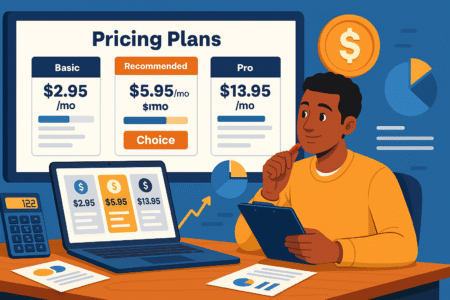
When it comes to pricing, HostGator can feel like a buffet. There are plans for almost every type of user — from someone launching a personal blog to businesses that need serious horsepower.
The key is knowing what’s included at each level and whether the price is justified.
Comparing Plans and What’s Included
Here’s a quick breakdown of the most common HostGator plans you’ll see:
- Shared Hosting (Hatchling, Baby, Business, Pro): Starting at around $3.75–$13.95 per month. Great for small sites and personal projects.
- WordPress Hosting (Baby, Business, Pro): Starts at $4.50/month with perks like pre-installed WordPress, SSL, Cloudflare CDN, and malware protection.
- VPS Hosting (Snappy 2000, 4000, 8000): From $34.99/month. You get more dedicated resources, root access, and scalability.
- Reseller Hosting (Snappy 2000–8000): Starting at $34.99/month if you want to sell hosting under your own brand.
- Dedicated Servers (Value, Power, Enterprise): From $141/month up to $343/month. Perfect for businesses needing maximum performance.
- E-commerce Plans (Online Store, Online Store + Marketplace): From $9.95/month, tailored for small businesses wanting to sell products online.
To make this clearer, here’s a comparison table that shows what you get at a glance:
| Plan Type | Starting Price | Best For | Key Features |
| Shared Hosting | $3.75/mo | Beginners, small sites | Free domain, SSL, unmetered bandwidth |
| WordPress Hosting | $4.50/mo | WordPress users | Pre-installed WP, backups, Cloudflare CDN |
| VPS Hosting | $34.99/mo | Growing sites needing resources | Root access, scalable, dedicated IP |
| Reseller Hosting | $34.99/mo | Agencies or resellers | White-label hosting, free migration |
| Dedicated Server | $141/mo | Large businesses, heavy traffic | High RAM, NVMe storage, dedicated IPs |
| E-commerce Plans | $9.95/mo | Online stores and marketplaces | Online store builder, analytics, free domain |
Hidden Costs You Should Watch Out For
This is where I’d advise caution. The intro prices look amazing, but renewal rates jump significantly:
- Shared hosting can go from $3.75 to $10.99+.
- WordPress hosting renews at $16.49–$29.69.
- VPS and dedicated renewals almost double in some cases.
Other hidden costs to note:
- Domain privacy isn’t always free after year one.
- Backups are included only on higher-tier plans.
- Add-ons like SEO tools and extra email storage can increase costs.
If you’re budget-conscious, I suggest calculating the renewal rate upfront rather than just the first-year discount.
How HostGator’s Pricing Stacks Against Competitors
Compared to Bluehost or Hostinger:
- HostGator tends to run cheaper upfront but has steeper renewal rates.
- WordPress hosting plans are almost identical in pricing, though Hostinger’s often bundle email at lower tiers.
- VPS and dedicated hosting are fairly priced, especially given the NVMe storage — which makes a noticeable speed difference.
Overall, I’d say HostGator sits in the middle of the market: Not the absolute cheapest, but you do get solid value for the money spent.
Best Value Plan for Beginners vs. Businesses
For beginners, the Baby Plan ($4.50/month) or Shared Hatchling Plan ($3.75/month) is plenty to start. You’ll get a free domain for the first year, free SSL, and unmetered bandwidth.
For businesses, I’d recommend either:
- The Business WordPress Plan ($6.25/month at intro) if you’re running a content-heavy site.
- The Snappy 4000 VPS Plan ($53.99/month) if performance and control matter.
If you’re scaling fast, the dedicated Value NVMe 32 plan ($141/month) is surprisingly strong for its specs.
Customer Support and User Experience
Good pricing is only half the story. Support and usability can make or break your experience with a hosting provider. Here’s how HostGator performs in the real world.
Support Channels: Live Chat, Phone, and Knowledge Base
HostGator offers three main support avenues:
- Live Chat: Available 24/7 from your dashboard. It’s the fastest way to solve small issues.
- Phone Support: U.S.-based numbers with quick call-back options.
- Knowledge Base: Dozens of guides, tutorials, and step-by-step articles.
I personally lean on chat support. The reps usually join within 2–5 minutes, which is reasonable compared to some hosts where you’re waiting half an hour.
Average Response Times and Helpfulness
From my experience, the average response time is quick, but the quality of answers varies. Some reps are very hands-on and even walk you through steps like setting up WordPress. Others give you links to guides and leave it at that.
On the phone, the help feels more thorough, though it does take longer to connect. If you’re not tech-savvy, I’d say go phone over chat.
Learning Curve and Onboarding Experience
HostGator makes onboarding fairly painless. Right after signup, the dashboard gives you clear buttons like “Create a Website” or “Set Up WordPress.”
The website builder is integrated into this same flow, so you don’t feel lost hopping between different portals. I remember the first time I set up a Baby Plan — I went from checkout to publishing a test page in under 30 minutes without feeling stuck.
The only hiccup? Some advanced features (like DNS editing or email routing) live in the classic cPanel, which looks a bit outdated. If you’ve never used cPanel before, it can feel intimidating at first.
Community Resources and Tutorials
Besides the official knowledge base, there’s also:
- A HostGator YouTube channel with visual walk-throughs.
- Active community forums where people share troubleshooting tips.
- Step-by-step onboarding emails that help new users avoid mistakes.
I think the YouTube tutorials are underrated. If you’re more of a “show me, don’t tell me” learner, those videos cut your learning time in half.
Pros and Cons of HostGator Website Builder
Every tool has strengths and weaknesses, and the HostGator website builder is no different. Laying out both sides helps you decide without surprises down the road.
Key Advantages That Make It Stand Out
From my time using the builder, a few things really shine:
- Ease of Use: The drag-and-drop editor feels intuitive, even for complete beginners. You won’t spend hours Googling “how to move a button.”
- Mobile-Friendly by Default: Sites adapt automatically for phones and tablets, and you can preview them in the editor.
- Built-In Hosting: Unlike some builders that rely on third parties, HostGator runs everything on its own servers, which keeps things smoother.
- Affordable Starting Plans: Shared and e-commerce plans are budget-friendly if you’re just getting started.
- Decent Feature Set: Blogging, e-commerce tools, and SEO basics are all included, so you don’t need to juggle extra plugins.
I’d say the biggest win is how quickly you can go from zero to a live, polished site — often in under an hour.
Limitations You Should Know Before Choosing
Here’s where things get tricky, and I think it’s important to be upfront:
- Limited Customization: You can tweak fonts, colors, and layouts, but you won’t get pixel-level design freedom like in Wix.
- Pricing Jumps on Renewal: Intro prices look great, but renewals are noticeably higher.
- Basic E-Commerce: Selling a few products works fine, but it’s not designed for big, complex stores.
- Capped Features: No advanced animations, limited app integrations, and no deep coding access if you like to tinker.
If you’re the type who loves pushing design boundaries, these limits can feel frustrating.
Who This Builder Works Best For
I believe the HostGator builder is best suited for:
- Beginners who want a no-stress way to launch a site.
- Small businesses that need a professional online presence quickly.
- Freelancers or service providers who want to showcase their work.
- Local shops that plan to sell a handful of products online.
It’s essentially built for people who value speed and simplicity over endless options.
Who Might Be Better Off with Another Option
If you’re running a large online store, building a content-heavy site, or you crave design freedom, you’ll probably outgrow HostGator fast. In those cases, I’d suggest:
- Wix or Squarespace for design flexibility.
- Shopify if e-commerce is your main focus.
- WordPress if you want maximum scalability and control.
HostGator works as a stepping stone, but not necessarily as a forever solution for advanced users.
Is the HostGator Website Builder Worth It?
So, the big question: should you invest your time and money into HostGator’s builder? The answer depends on where you are in your journey.
When It’s the Right Choice for a User
It’s worth it if:
- You want to get online quickly without touching code.
- You’re starting a personal blog, portfolio, or small business site.
- Your budget is limited, and you don’t want to spend thousands on custom design.
I suggest it as a starter solution — it gives you enough to look professional without demanding tech expertise.
Scenarios Where You Might Outgrow It
As your site grows, you might run into walls. For example:
- A store with dozens or hundreds of products will feel cramped.
- Marketing-heavy businesses needing advanced integrations will find the builder limiting.
- Developers or creative perfectionists may find it too restrictive.
In short: it’s not built for “power users.”
Alternatives You Should Consider Before Deciding
Here are three alternatives I’d weigh before pulling the trigger:
- Wix: More design flexibility and a bigger app marketplace.
- Squarespace: Sleek templates, perfect for creatives and branding-heavy businesses.
- WordPress (with hosting): The steepest learning curve but also the most powerful for growth.
If HostGator feels like training wheels, these are the natural “next bikes” you can move onto.
Final Verdict Based on Speed, Simplicity, and Value
For beginners and small businesses, the HostGator website builder is worth it. It’s fast, simple, and delivers solid value at entry-level pricing.
But if I’m being honest, it’s best viewed as a stepping stone. It’s fantastic for getting online today — but you may eventually want to migrate to something more advanced as your business or ambitions grow.
If your goal is speed, peace of mind, and an easy setup, I’d say go for it. If your goal is long-term scalability and customization, plan ahead for something bigger.


